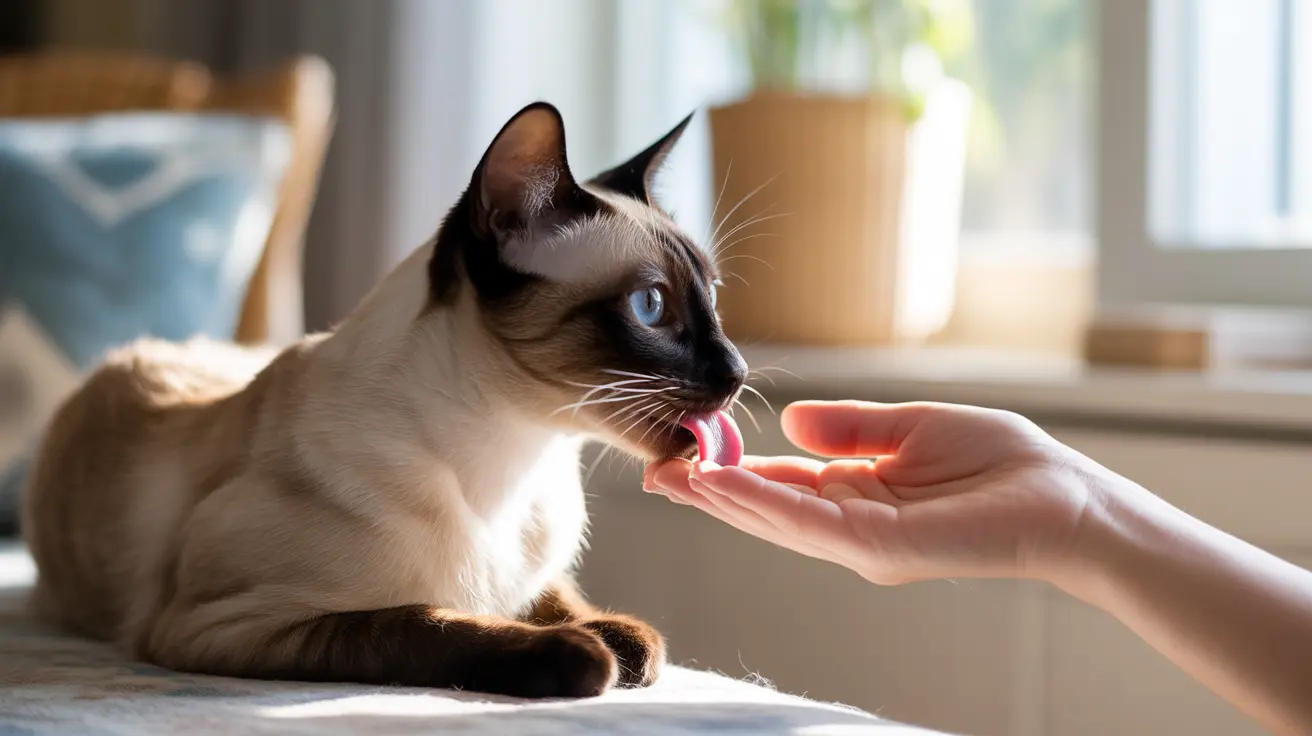Have you ever wondered why your cat seems obsessed with licking your fingers? This common feline behavior can range from a simple display of affection to potential health-related concerns. Understanding why cats lick fingers can help strengthen your bond with your pet and alert you to possible issues that need attention.
The Language of Love: Affection Through Licking
When your cat licks your fingers, they're often expressing deep affection and trust. This behavior mirrors the grooming practices between cats in the wild, known as allogrooming. Mother cats groom their kittens not only for cleanliness but also to strengthen social bonds and show care.
Your cat sees you as part of their family unit, and by licking your fingers, they're including you in their social grooming ritual. This behavior helps create a shared scent mark, effectively marking you as part of their trusted circle.
Seeking Attention and Interaction
Cats are intelligent creatures who quickly learn which behaviors earn them attention from their human companions. If your cat notices that licking your fingers results in pets, playtime, or other forms of attention, they're likely to repeat this behavior.
This learned response can become a reliable way for your cat to initiate interaction when they want your attention. While this isn't necessarily problematic, it's important to maintain healthy boundaries to prevent the behavior from becoming excessive.
The Taste Factor: What's on Your Fingers?
Sometimes, the explanation is simpler than social bonding or attention-seeking - your fingers might just taste good to your cat! This is especially true if you've recently handled food or applied lotions and creams.
Cats have a highly developed sense of smell and taste, and they may be attracted to:
- Residual food particles
- Salt from sweat
- Lotions or moisturizers
- Soap or hand sanitizer scents
Early Life Experiences and Comfort Seeking
Cats who were weaned too early may develop a habit of licking fingers as a comfort mechanism. This behavior often mimics nursing and may be accompanied by kneading and purring. It's their way of self-soothing and recreating the comfort they experienced as kittens.
When to Be Concerned
While finger licking is usually harmless, excessive licking might indicate underlying issues such as:
- Anxiety or stress
- Compulsive behavior
- Medical conditions
- Nutritional deficiencies
If your cat's licking behavior suddenly increases or becomes obsessive, consult with your veterinarian to rule out potential health concerns.
Frequently Asked Questions
Why does my cat lick my fingers after I eat or handle food?
Cats are attracted to food residue and interesting scents on your fingers. Their keen sense of smell and taste draws them to investigate these flavors, especially if you've handled meat or fish products.
Should I be concerned if my cat's licking turns into biting?
Light nibbling combined with licking is usually normal play behavior. However, if the biting becomes aggressive or painful, it may indicate overstimulation or frustration. Pay attention to your cat's body language and give them space when needed.
Can stress or anxiety cause my cat to lick my hands excessively?
Yes, excessive licking can be a sign of stress or anxiety. Changes in environment, routine, or social dynamics can trigger this behavior as a self-soothing mechanism. If the behavior seems compulsive, consult with your veterinarian.
How do you tell if a cat is licking your fingers out of affection vs. health issues?
Affectionate licking is usually accompanied by positive body language like purring, relaxed posture, and gentle head butting. Health-related licking tends to be more intense, persistent, and may be accompanied by other behavioral changes or signs of distress.
Why does my cat lick my lotion or skincare products off my hands?
Cats may be attracted to the novel scents and tastes of skincare products, especially those containing natural ingredients or fats. However, be cautious as some products can be harmful if ingested. Always ensure your hands are free of potentially toxic substances before allowing your cat to lick them.






